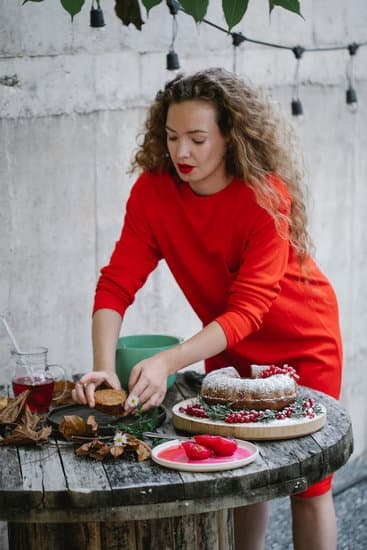Cake decorating with rice paper has become a popular technique for adding intricate designs to cakes and baked goods. Rice paper, traditionally used in Asian cuisine, has found its way into the world of cake decoration due to its versatility and ease of use. Whether you are a seasoned baker or just starting out, incorporating rice paper into your cake decorating repertoire can elevate your creations to a whole new level.
When it comes to cake decorating with rice paper, the possibilities are endless. From delicate floral patterns to bold geometric designs, rice paper allows you to unleash your creativity and add unique touches to your cakes. In this article, we will delve into the world of cake decorating with rice paper, exploring different types of rice paper available, sharing tips and tricks for working with it, and providing inspiration for creative designs.
Whether you are looking to create a show-stopping wedding cake or simply want to add some flair to your everyday bakes, rice paper can be a game-changer in your decorating arsenal. Join us as we explore the fascinating world of cake decorating with rice paper and discover how this simple ingredient can make a big impact on your sweet creations.
Exploring the Different Types of Rice Paper for Cake Decorating
When it comes to cake decorating with rice paper, there are a variety of options to choose from. Understanding the different types of rice paper available can help you achieve the desired effect for your cake design. One common type of rice paper used in cake decorating is wafer paper.
Wafer paper is thin and slightly translucent, making it ideal for creating delicate decorations such as flowers or intricate designs. Another type of rice paper commonly used in cake decorating is frosting sheets. Frosting sheets are thicker than wafer paper and have a smooth, white surface that is perfect for printing images or patterns onto for edible decorations.
Wafer Paper
Wafer paper, also known as rice paper, is made from potato starch, water, and vegetable oil. It has a neutral taste and dissolves easily when placed on moist surfaces like buttercream or fondant. Wafer paper can be easily cut into different shapes and sizes to create unique decorations for cakes and desserts. It is important to note that wafer paper should be stored in a cool, dry place away from direct sunlight to prevent it from becoming too brittle.
Frosting Sheets
Frosting sheets, on the other hand, are made from sugar and corn syrup pressed into a thin sheet that can be printed on with edible ink. These sheets are typically used in conjunction with electronic cutting machines or printers to create detailed images or designs for cakes.
Frosting sheets provide a smooth surface for printing high-quality images that can be applied to cakes using edible glue or frosting. When working with frosting sheets, it is essential to handle them gently to prevent them from tearing or wrinkling before applying them to the cake surface.
Tips and Tricks for Working With Rice Paper in Cake Decorating
Cake decorating with rice paper can be a fun and creative way to add unique designs and patterns to your cakes. However, working with this delicate material requires some tips and tricks to ensure success. Here are some helpful suggestions for using rice paper in cake decorating:
- Keep rice paper dry: Moisture is the enemy of rice paper, so make sure to store it in a cool, dry place until you are ready to use it.
- Cut with sharp scissors: When cutting rice paper into shapes or designs, use sharp scissors to prevent tearing or ragged edges.
- Apply lightly: To adhere rice paper to a cake, gently brush or dab a small amount of water on the back of the paper. Avoid using too much water as it can cause the paper to wrinkle or dissolve.
Experimenting with different techniques and tools will help you master the art of cake decorating with rice paper. Whether you’re creating intricate patterns or simple accents, these tips will help you achieve professional-looking results.
- Practice makes perfect: Before attempting a complex design on a cake, practice using rice paper on a flat surface first. This will help you get comfortable with handling the material and experimenting with different techniques.
- Store leftover rice paper properly: To prevent rice paper from drying out or becoming brittle, store any unused portions in an airtight container. This will help preserve the quality of the paper for future projects.
- Have patience: Working with rice paper requires patience and precision. Take your time when applying designs to ensure smooth results without wrinkles or bubbles.
Creative Designs and Patterns You Can Achieve With Rice Paper
Intricate Floral Designs
One of the most popular and stunning designs you can achieve with rice paper in cake decorating is intricate floral patterns. Whether it’s delicate roses, vibrant sunflowers, or elegant lilies, rice paper allows for detailed petals and leaves that can elevate your cake to a work of art. By cutting and shaping rice paper into different flower shapes and colors, you can create a beautiful garden scene right on top of your cake.
Geometric Shapes and Patterns
For a more contemporary and modern look, consider using rice paper to create geometric shapes and patterns on your cakes. From simple chevron stripes to intricate hexagon designs, the possibilities are endless when it comes to incorporating geometric elements into your cake decorating. With the flexibility of rice paper, you can easily cut out precise shapes and arrange them in creative compositions on the surface of your cakes.
Watercolor Effects
If you’re looking for a unique and artistic touch for your cakes, consider experimenting with watercolor effects using rice paper. By painting edible food coloring onto the rice paper before applying it to the cake, you can achieve beautiful blends of colors that resemble watercolor paintings. This technique adds a whimsical and dreamy quality to your cake designs, perfect for special occasions like weddings or birthdays.
With these creative designs and patterns achievable with rice paper in cake decorating, you can truly elevate your baking game and impress your friends, family, or clients with stunning edible creations. Whether you prefer classic floral motifs, modern geometric shapes, or artistic watercolor effects, rice paper offers endless opportunities for experimentation and innovation in the world of cake decoration. So get ready to unleash your creativity and start exploring the wonderful world of cake decorating with rice paper.
Step-by-Step Guide to Using Rice Paper in Cake Decoration
Working with rice paper in cake decorating is a fun and creative way to elevate the look of your baked treats. To ensure successful results, it is important to follow a step-by-step guide when using rice paper for cake decoration.
The first step in using rice paper for cake decorating is to select the type of rice paper that best suits your design and taste preferences. Consider factors such as thickness, texture, and color when choosing the right rice paper for your project. Thin rice paper works well for delicate designs, while thicker rice paper can hold up better in more intricate patterns.
Once you have selected your desired rice paper, the next step is to prepare it for application on the cake. Cut the rice paper into the desired shapes and sizes using scissors or a sharp knife. Make sure to handle the rice paper gently to avoid tearing or creasing.
If applying an image or design onto the rice paper, use edible ink markers or printers specifically designed for food use. This will help achieve precise and detailed decorations on your cake.
How to Make Your Own Edible Rice Paper for Cake Decorating
Making your own edible rice paper for cake decorating can not only save you money but also give you the freedom to create unique and personalized designs for your cakes. Here are some simple steps to follow in order to make your own edible rice paper at home:
- Start by gathering all the necessary ingredients, including rice flour, tapioca starch, water, sugar, and vegetable oil.
- In a bowl, mix together one cup of rice flour and two tablespoons of tapioca starch. Gradually add in one and a half cups of water while stirring continuously to avoid lumps.
- Next, add two tablespoons of sugar and a teaspoon of vegetable oil to the mixture. Stir well until the ingredients are fully combined.
Once the mixture is smooth and free of any lumps, it is ready to be cooked. Pour a thin layer onto a non-stick pan over low heat and spread it out evenly using a spatula. Cook for about 2-3 minutes until the edges start to lift. Carefully peel off the rice paper from the pan once it has dried out completely. You can now use this homemade edible rice paper to create stunning decorations for your cakes.
By making your own edible rice paper for cake decorating, you can experiment with different flavors and colors to match the theme of your cakes perfectly. Whether you want to add a touch of elegance with delicate floral patterns or make whimsical designs for children’s birthday parties, the possibilities are endless when it comes to using homemade rice paper in cake decorating. Give it a try and unleash your creativity in the kitchen.
Common Mistakes to Avoid When Decorating Cakes With Rice Paper
When it comes to cake decorating with rice paper, there are some common mistakes that you’ll want to avoid to ensure a successful and visually appealing result. One of the primary mistakes to steer clear of is not properly preparing the rice paper before using it on your cakes.
It’s essential to make sure that the rice paper is moistened but not overly wet, as this can lead to a soggy and unattractive appearance on your cake. Take the time to lightly dampen the rice paper and allow it to soften before applying it to your cake for the best results.
Another mistake to avoid when working with rice paper in cake decorating is rushing the process. Whether you’re cutting out intricate designs or creating layered patterns, patience is key when handling rice paper. Rushing through the process can result in tearing or misshapen pieces, ultimately affecting the overall look of your decorated cake. Take your time and work methodically to achieve clean and precise results with your rice paper decorations.
Additionally, a common mistake when decorating cakes with rice paper is not considering the storage conditions of the finished product. Rice paper decorations are delicate and prone to damage if exposed to moisture or extreme temperatures.
To preserve the quality of your decorated cake, store it in a cool, dry place away from direct sunlight or humidity. Taking care in how you store your rice paper-decorated cake will help maintain its beauty and prevent any unwanted changes in appearance over time.
| Common Mistakes | Impact |
|---|---|
| Improperly preparing rice paper | Results in a soggy appearance on cakes |
| Rushing through the process | Leads to tearing or misshapen pieces |
| Inadequate storage conditions | Can damage delicate rice paper decorations |
Inspiration for Using Rice Paper in Cake Decorating
Cake decorating with rice paper opens up a world of creative possibilities for bakers and decorators alike. The use of edible rice paper can add intricate designs, vibrant colors, and unique textures to cakes that are sure to impress any audience. Whether you are a beginner or an experienced baker, incorporating rice paper into your cake decorating repertoire can take your creations to the next level.
One popular way to use rice paper in cake decorating is by creating edible images or prints on the surface of the cake. This technique involves printing designs onto sheets of rice paper using edible ink and then applying them to the cake.
From personalized photos to intricate patterns, the options are endless when it comes to decorating cakes with rice paper prints. This method is especially popular for special occasions like birthdays, weddings, or anniversaries where a customized touch is desired.
Another creative way to utilize rice paper in cake decorating is by making delicate wafer-thin flowers or other embellishments. Rice paper can be easily cut, shaped, and molded into various shapes and sizes, making it perfect for crafting intricate details on cakes. Whether you want to create realistic floral arrangements or whimsical figurines, rice paper provides a lightweight and edible medium that adds dimension and elegance to your cake designs.
Lastly, consider using colored rice paper to add visual interest and depth to your cakes. By layering different hues of rice paper or combining them with other decorative elements like fondant or icing, you can achieve stunning effects that will make your cakes stand out.
Experiment with color gradients, ombre effects, or marbling techniques to create visually striking designs that are sure to wow your guests. With a little creativity and practice, cake decorating with rice paper can elevate your confectionery creations from ordinary to extraordinary.
| Creative Ideas for Using Rice Paper | Description |
|---|---|
| Edible Prints | Create custom images or patterns on cakes using printed rice paper. |
| Rice Paper Flowers | Fashion delicate floral decorations using thin sheets of colored rice paper. |
| Colorful Layers | Layer different shades of rice paper for dynamic and visually stunning effects. |
Conclusion
In conclusion, incorporating rice paper into your cake decorating repertoire can truly elevate your creations to the next level. Whether you are a seasoned baker looking to add new techniques to your skill set or a novice looking to make a statement with your desserts, rice paper provides endless possibilities for creative expression. From delicate floral designs to bold geometric patterns, the versatility of rice paper allows for endless customization and personalization.
By exploring the different types of rice paper available for cake decorating and learning valuable tips and tricks for working with this unique material, you can unlock a world of design possibilities. The step-by-step guide provided in this article will help you navigate the process with ease, ensuring that you achieve professional-looking results every time.
Additionally, by understanding common mistakes to avoid when using rice paper in cake decoration, you can prevent any mishaps and create stunning cakes that will impress your friends, family, and clients.
Whether you choose to purchase pre-made edible rice paper or make your own from scratch, the use of rice paper in cake decorating offers a fresh and modern approach that is sure to set your creations apart. Look for inspiration in real-life examples and explore new ideas to push the boundaries of traditional cake design.
With patience, practice, and a touch of creativity, you can take your cake decorating game to new heights with the versatile medium of rice paper.
Frequently Asked Questions
How Do You Get Rice Paper to Stick to a Cake?
To get rice paper to stick to a cake, you can use a small amount of clear piping gel or simple syrup brushed onto the surface of the cake before placing the rice paper on it. This will help adhere the rice paper securely and prevent any air bubbles.
Can You Use Rice Paper on Cakes?
Rice paper can certainly be used on cakes as an edible decoration. It is a versatile medium that allows for intricate designs and images to be transferred onto the surface of the cake. Just make sure to handle it gently to avoid tearing.
How Long Do Rice Paper Sails Last on a Cake?
The longevity of rice paper sails on a cake depends on various factors such as humidity, temperature, and handling. In general, if stored in a cool, dry place away from direct sunlight, rice paper sails can last several days without losing their shape or color. However, they may start to become slightly brittle over time.

Welcome to our cake decorating blog! My name is Destiny Flores, and I am the proud owner of a cake decorating business named Cake Karma. Our mission is to provide delicious, beautiful cakes for all occasions. We specialize in creating custom cakes that are tailored specifically to each customer’s individual needs and tastes.





